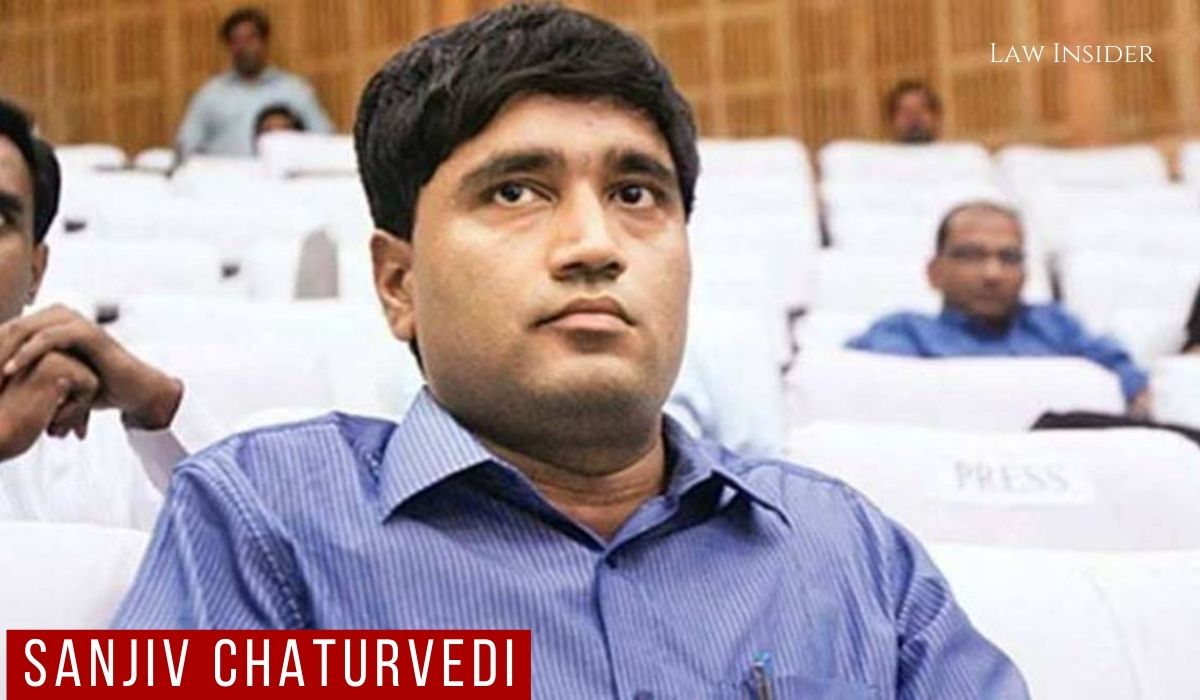Bhuvana Marni
Published on: October 18, 2022 at 23:53 IST
Before the Delhi High Court, IFS Officer Sanjiv Chaturvedi argued against a complaint the Central Bureau of Investigation (CBI) filed against an order from the Central Information Commission (CIC) ordering the agency to provide the information he requested in connection with his complaint about the alleged corruption in some purchases at the All India Institute of Medical Science in the nation’s capital.
From June 2012 to August 2014, Chaturvedi served as the Chief Vigilance Officer of the AIIMS in Delhi on a central assignment.
He requested records about the CBI’s probe into a 2014 charge of corruption. He allegedly discovered fraud in purchasing disinfectants at the AIIMS Trauma Center.
He found that a certain Assistant Store Officer had purchased some products from the firm belonging to his son and daughter without tender and at rates higher than available at other centres of AIIMs.
After receiving an award of zero in the Annual Performance Year Report for the years 2015–16 as a result of his complaint, Chaturvedi 2017 applied for information under the RTI Act. This “resulted in a very serious blow” to his career.
The central organisation, however, declined to provide the requested information.
The Central Information Commission gave CPIO the order to release the information on November 25, 2019.
After finding “merit” in the contentions made by the CBI that information gathered during the investigation would not be subject to disclosure under the Right To Information Act and that CIC is only accountable to the Central Vigilance Commission, Justice Yashwant Varma stayed the CIC order on July 19 of this year.
On Monday, Chaturvedi filed a motion for a vacation of the stay of the impugned order, regarding which the court had provided notice.
A hearing on the same has now been scheduled for December 14.
Chaturvedi has asked for the plea to be dismissed with costs, claiming that the CBI’s petition is frivolous litigation and is simply intended to shield corrupt officials and officers involved in “shoddy investigation”.
“From the above-mentioned facts, it is also very obvious that this was completely frivolous litigation, aimed only at protecting those officers of CBI involved in a shoddy investigation and the culprits in corruption of AIIMS and hence, same should be dismissed with the heaviest cost in terms of law aid down by Apex Court in DnyandeoSabaji Naik vs. Pradnya Prakash Khadekar,” Chaturvedi’s counter affidavit reads.
Chaturvedi has further said that it is obligatory for the central agency to disclose information regarding corruption cases to the CIC.
“For the purpose of disclosure of information under the RTI Act, it is completely irrelevant as to which organisation reports to which authority, and the only thing that matters is that the concerned organisation should be a public authority under Section 2(h) of RTI Act, 2005, which CBI indubitably is and has appointed CPIO also..”
“…this read with the proviso in Section 24 of RTI Act, 2005 and above mentioned Central Government binding instructions dated 14.11.2007 makes it obligatory for them to disclose information regarding corruption cases,” the reply states.
Additionally, he claimed that the CPIO CBI concealed the fact that Chaturvedi was the complainant in the case and that he had supplied all of the evidence in his legitimate professional role as the CVO.
According to Chaturvedi, this case’s facts and circumstances were very distinct from those of earlier corruption cases in terms of the need to disclose information.
The response further claims that the CBI “misled” the court by claiming that it was not required by law to send a report to the government while concealing the fact that, in this particular case, it had sent the report to the union ministry of health, which had provided it to him under the RTI Act, and through which he had learned of “serious anomalies” in the investigation.
According to Chaturvedi’s argument, the CBI failed to file either a preliminary inquiry or a regular case in the matter, and as a result, none of the provisions of the CrPC, the CBI manual, or the DSPE Act, 1946, apply to the case because they can only be carried out following the filing of an RC or FIR.
Case Title: CPIO CBI vs. Sanjiv Chaturvedi

